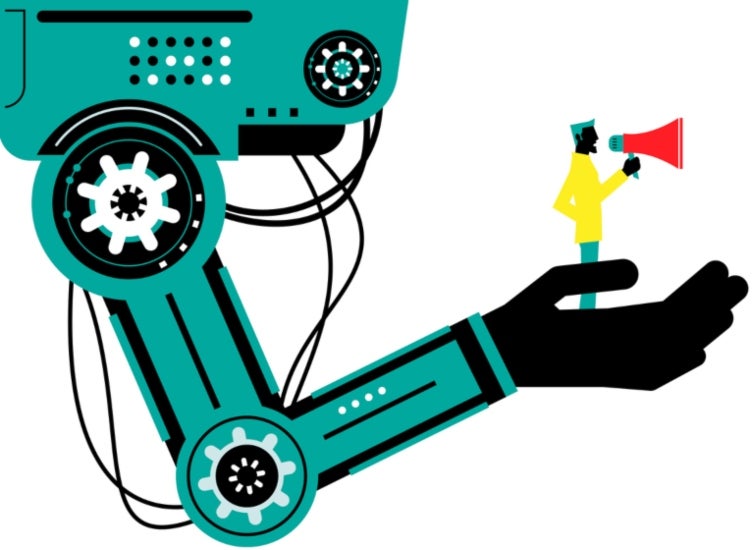How marketing automation can benefit your business

Every expert has a different definition of what marketing automation is. Go far enough down the research rabbit hole and you can find lengthy articles on the subject implying it’s a science akin to quantum physics.
And while nobody is suggesting that getting automation right is easy, at its essence automation is not a complicated concept. Marketing automation is a method of leveraging digital technology to take laborious, monotonous marketing processes away from humans.
The overall objective is to give people more time to devote to tasks involving creativity and social complexity. Indeed, improving productivity is the number one reason marketers employ an automation program according to a 2017 Adestra report titled ‘State of Marketing Automation Benchmarks for Success’.
What are the advantages of marketing automation?
According to Adestra, 43% of respondents said that “optimizing productivity” was one of the most important objectives of a marketing automation strategy. 41% of respondents placed a high value on automation’s role in increasing marketing return on investment. 39% also told the researchers it was critical for improving the quality of their database and for acquiring more customers.
A different piece of research conducted by Ascend2, asked leaders in the field of marketing “What are the top priorities for a marketing technology strategy to achieve?”
- 65% of respondents mentioned increasing return on investment.
- 57% talked about improving marketing efficiency.
- 39% rated improving decision making as a high priority.
- 35% mentioned the much more general priority of gaining a competitive advantage.
A third piece of research, this one undertaken by GetResponse in 2018, investigated businesses’ use of email and marketing automation. When asked to name a single biggest benefit of automation the respondents (mostly senior executives) rated the answers in the following order:
- Saving time (30%)
- Lead generation (22%)
- Increasing revenue (17%)
- Customer retention (11%)
- Tracking and monitoring campaigns (8%)
- Shortening the sales cycle (2%)
Does automation really work?
Whatever research you feel is more relevant to your situation, one thing is clear: when implemented effectively, automation can have a significant effect on revenue and costs.
Nucleus Research found that marketing automation “drives a 14.5% increase in sales productivity and a 12.2 % reduction in marketing overhead”. There are also countless studies showing high percentages of marketers themselves reporting the benefits of successful automation.
It can change a campaign, a strategy, even a business for the better, but how does automation do that? Probably in too many ways to cover fully in a single blog post, so today we’ll keep it to a critical few.
How does automation help your business?
Let’s look at three of the fundamental ways in which marketing automation can specifically make your business better:
1. Making reporting easier (and more accurate)
As Clodagh O'Brien says on the Digital Marketing Institute blog, “Automation software collects and analyses data regarding leads, customers, sales, campaign success, and so on. This helps marketers to assess the effectiveness of past and current campaigns.”
You can turn this data into insightful reports that, as O’Brien puts it will allow you to “predict which strategies will work well in the future.”
This data can also be put to use in the form of testing.
2. Allowing for testing
In their broad-ranging report on email and automated marketing, GetResponse found that a huge proportion of surveyed marketers, either didn’t test their campaigns or found testing challenging. They concluded that “while most email platforms offer basic targeting, A/B testing, and other options, testing requires more time and planning.”
However, testing can lead to very fast and very significant positive changes in results – so could the benefit be worth the time and effort?
3. Increasing personalisation
“Personalisation” might sound like a buzzword, but there is substance and value behind the idea.
A really simple way of explaining why it’s important is to use the example of the Columbia University experiment, as Swift Digital has done in this blog post. In 2000 researchers at Columbia conducted a simple test: they offered 24 types of jam at a farmer’s market. They estimated that about 60% of attendees stopped to look at the jams but only 3% bought a jar. When they changed the number of jams to 6, the proportion of purchasers increased to 30%.
The experiment demonstrates that it’s clearly better to offer fewer choices than many. It’s a way of mitigating “choice fatigue”.
And it’s better again to make those few choices relevant to the potential purchaser. The Swift Digital blog calls this combating “decision paralysis”. But it warns that “the solution to this problem isn’t just to offer less choice and general personalisation in your emails”. Instead, you should let automation help you find that “sweet spot”: just the right number of options and specificity for your target market.
Should you automate everything?
Automation is the future; it’s undeniably here to stay.
Forrester Data suggests that by 2023 companies around the world will be spending US$25.1 billion a year on marketing automation technology. The figure was US$11.4 billion in 2017.
Does that mean, as a business owner, you should be scrambling to automate anything and everything over the next few years?
Definitely not.
An article from the Harvard Business Review, although it refers specifically to customer service, makes a critical point that can be applied to all of marketing. Ryan Buell, an Associate Professor at Harvard, believes that:
- Service can be emotional but technology can’t be.
- We still prefer having our problems solved by people.
- Less work for employees generally leads to more work for customers.
For these reasons, it’s essential that, as a business owner, you take a prudent approach to what you automate and what you don’t when it comes to marketing.
“Businesses will continue to seek new ways to use technology to improve the quality and efficiency of service. Some will do better than others,” says Buell.
We hope this post will, in some small way, help you be one of the better users of technology in the future.
Gain marketing skills designed for the future of work. Learn more about RMIT Online's Graduate Certificate in Digital Marketing Leadership or RMIT Online's Master of Marketing by contacting our Student Advisors today on 1300 701 171.




